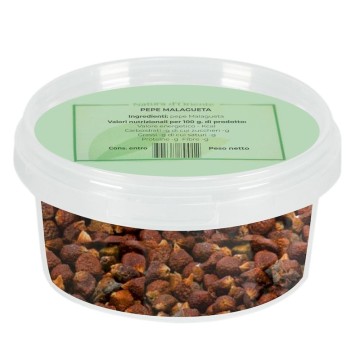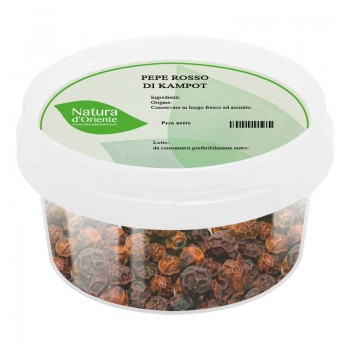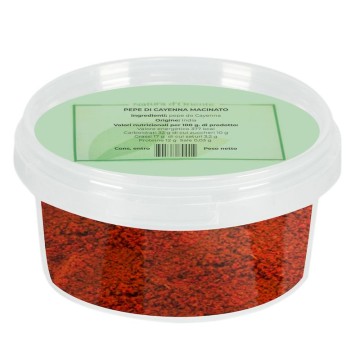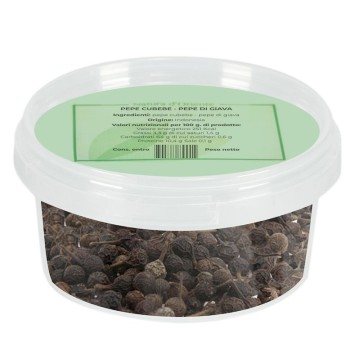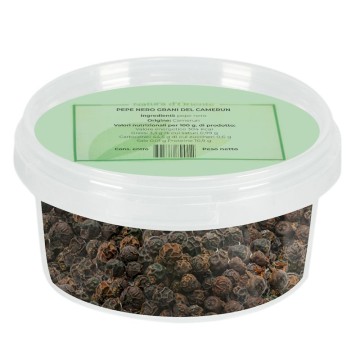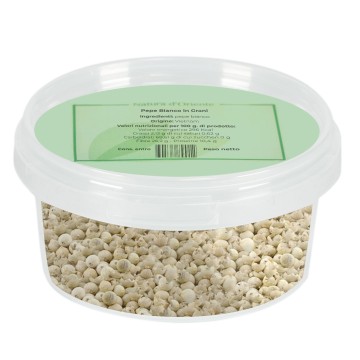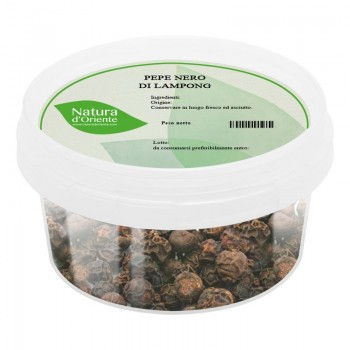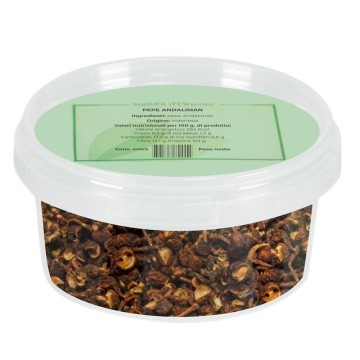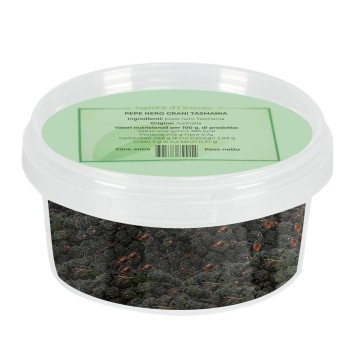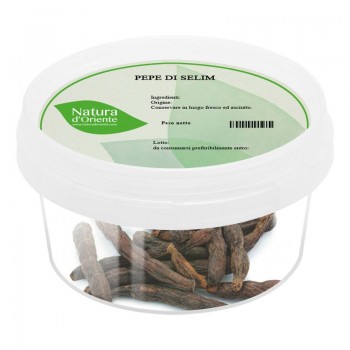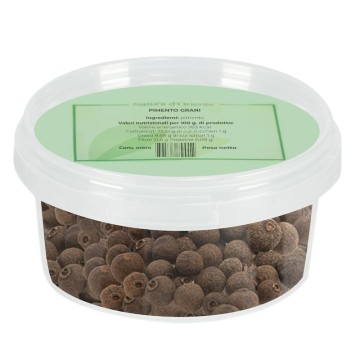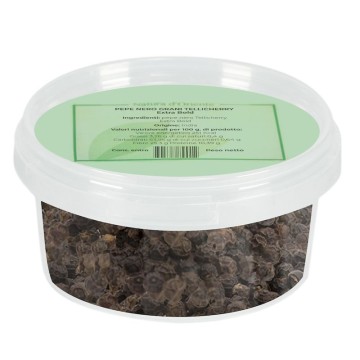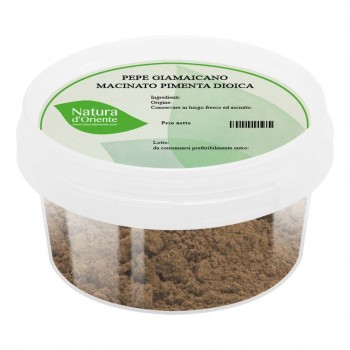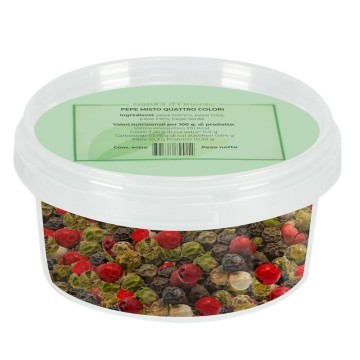Ground black pepper: properties and benefits:
Ground black pepper is considered "the king of spices" in cooking. It is obtained from a tropical plant grown especially in some regions of south-east Asia. For its growth, this plant prefers a temperate climate. Black pepper is considered among the best selections of pepper in the world.
And it is the most widespread black pepper in Italy in the common form. It is a medium spicy pepper, it is recommended and we recommend it on all dishes. It has particularly intense spicy and aromatic notes, but with pungent resinous hints. Black pepper is the reference pepper in Southern European kitchens that decide to offer quality grains. Very suitable with first courses based on tomato sauce, fresh or preserved.
It enhances all grilled meats, fish and vegetables. Black pepper is a spice with numerous virtues, in addition to its wide use in cooking it is also used in body care. The most interesting active ingredient contained in pepper is piperine, a substance capable of stimulating the metabolism, thus helping to burn more calories and counteract the accumulation of fat.
Its digestive properties are well known, so much so that it is used in Ayurvedic medicine together with others, precisely to promote the correct functioning of the stomach. This spice also has antiseptic, purifying, expectorant properties, increases sweating and is able to stimulate the production of endorphins, for this last property it is also considered a sort of natural antidepressant. Among the other properties of black pepper there is also a discrete analgesic capacity which makes it useful in the treatment of muscle and joint pain.
Origins and historical notes:
Pepper is the berry of Piper nigrum, a climbing plant of the Piperaceae family, native to western India (Malabar), but is also cultivated extensively in other countries. Pepper, in use since prehistoric times in India, was also known to the Egyptians who apparently used it for embalming mummies.
When Alexander the Great conquered Asia in the 4th century BC and real caravan routes were opened, pepper arrived in the West. After the fall of the Roman Empire, the Arabs took control of the pepper trade, but with the end of the Byzantine Empire, the spice trade passed into the hands of the Maritime Republics of Venice and Genoa, which are responsible for the spread of pepper throughout Europe.
Today, Vietnam is the largest producer of pepper, followed by Indonesia, India, Brazil, Malaysia, Sri Lanka, Thailand and China. The same fruit, through different processing methods, is used to produce the various types of pepper.
White pepper is ideal for preparing sauces, black pepper is suitable for red meats, green pepper is used above all to prepare beef fillet. Red pepper, on the other hand, is the least pungent, but is very rare in the West.

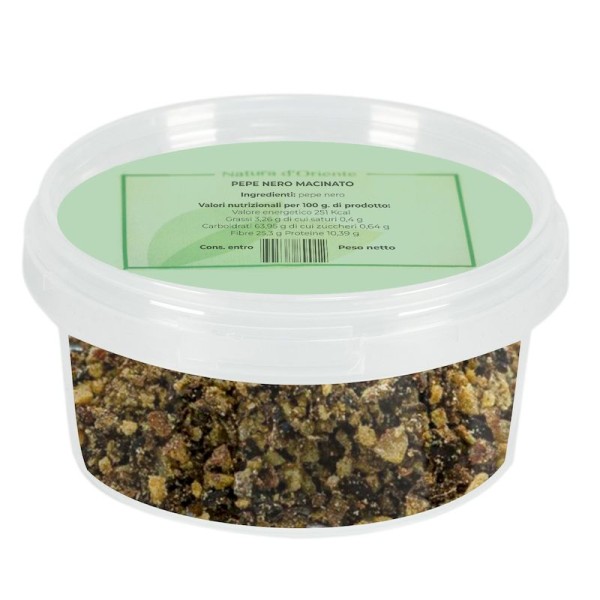







 No reward points for this product.
No reward points for this product.
